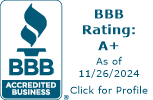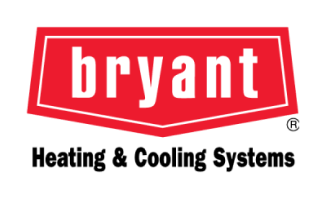When it comes to your home’s plumbing, understanding the rules and regulations that govern installations and repairs can be just as important as knowing how to fix a leaky faucet. Plumbing codes are in place to ensure safety, health, and efficiency, and as a homeowner, being familiar with these codes can save you time, money, and stress. At Bassett Services, we pride ourselves on being your home’s best friend since 1978, providing not just top-notch plumbing services, but also the knowledge you need to navigate the complexities of homeownership.
In this blog post, we’ll explore what plumbing codes are, why they matter, the key components of these codes, and how Bassett Services can help you stay compliant and informed.
What are Plumbing Codes?
Plumbing codes are sets of regulations that dictate the standards for plumbing design, installation, maintenance, and repair. These codes vary by region and are usually developed by local or state government agencies, often based on national standards such as the International Plumbing Code (IPC) or the Uniform Plumbing Code (UPC).
The primary goal of plumbing codes is to protect public health and safety by ensuring that plumbing systems are designed and installed correctly. Compliance with these codes helps prevent issues like contaminated water supply, sewer backflows, and improper drainage.
Why Plumbing Codes Matter
1. Health and Safety
The foremost reason for plumbing codes is to ensure the health and safety of the public. Properly installed plumbing prevents leaks and contamination of drinking water, reducing the risk of waterborne diseases. Codes ensure that systems are designed to prevent issues like backflow, which can introduce harmful substances into your water supply.
2. Property Protection
Adhering to plumbing codes protects your property from potential damage. Properly installed plumbing systems minimize the risk of leaks, water damage, and other issues that can result from substandard work. Non-compliance can lead to costly repairs and even affect the resale value of your home.
3. Insurance Compliance
Many insurance companies require that plumbing work meet local codes to be eligible for coverage. If your plumbing is not up to code, you may find yourself facing higher premiums or even denied claims in the event of a plumbing-related disaster.
4. Community Standards
Plumbing codes help maintain community standards and ensure that all homes meet certain safety benchmarks. This uniformity helps create safer neighborhoods and can increase property values.
Key Components of Plumbing Codes
Understanding the basics of plumbing codes can help you navigate your responsibilities as a homeowner. Here are some key components to be aware of:
1. Material Specifications
Plumbing codes specify the types of materials that can be used for various plumbing applications. For example, certain types of pipe materials (like PVC, copper, or PEX) are regulated for their durability and safety. Always consult local codes to ensure you’re using approved materials.
2. Installation Standards
Codes dictate how plumbing fixtures and systems must be installed. This includes guidelines for:
- Pipe Sizing: Proper pipe sizes must be used to ensure adequate water flow.
- Ventilation: Plumbing systems must be properly vented to prevent sewer gases from entering the home.
- Water Pressure: Codes regulate acceptable water pressure levels to protect pipes and fixtures.
3. Fixture Requirements
Plumbing codes often specify minimum requirements for fixtures like sinks, toilets, and bathtubs. This includes guidelines on the number of fixtures required for different types of buildings and how they should be installed.
4. Drainage and Waste Systems
Proper drainage and waste systems are crucial for preventing sewer backups and ensuring proper waste disposal. Codes specify how drainage systems must be configured, including slope requirements and trap placements.
5. Backflow Prevention
Backflow prevention devices are critical for protecting drinking water supplies. Plumbing codes require these devices to be installed in certain situations to prevent contaminants from flowing back into the water supply.
Common Plumbing Code Violations
Even seasoned homeowners can inadvertently run afoul of plumbing codes. Here are some common violations to watch out for:
1. Improper Venting
Failing to vent plumbing systems correctly can lead to pressure imbalances, allowing sewer gases to escape into your home. Ensure that all plumbing fixtures are adequately vented according to local codes.
2. Using Non-Compliant Materials
Using unapproved materials for plumbing installations can result in leaks, failures, and health hazards. Always verify that the materials you’re using comply with local regulations.
3. Inadequate Drainage
Improperly installed drainage systems can cause backups and flooding. Ensure that your drainage system adheres to slope and size requirements outlined in plumbing codes.
4. Ignoring Permits
Many localities require permits for plumbing work. Failing to obtain the necessary permits can lead to fines and complications during future inspections or property sales.
How Bassett Services Can Help
At Bassett Services, we’re doggedly determined to ensure your plumbing systems are safe, compliant, and efficient. Here’s how we can assist you:
1. Expert Consultation
Our knowledgeable technicians can provide guidance on local plumbing codes and help you understand what’s required for your specific project. We believe in being the expert, so you can focus on what matters most—making your house a home.
2. Quality Installations and Repairs
Whether you’re installing new plumbing fixtures, replacing old pipes, or making repairs, our team is trained to adhere to local codes. We pride ourselves on delivering top-dog service, ensuring your plumbing is installed correctly the first time.
3. Code Compliance Checks
Before any work begins, we can perform a thorough code compliance check to ensure that all your plumbing systems meet local regulations. This proactive approach helps avoid issues down the road.
4. Permitting Assistance
Navigating the permitting process can be daunting. We can assist you in obtaining the necessary permits for your plumbing projects, ensuring you’re compliant from the start.
5. Ongoing Maintenance and Inspections
Regular plumbing inspections can help identify potential code violations before they become significant problems. At Bassett Services, we offer maintenance plans to keep your plumbing systems in excellent condition and compliant with codes.
Ready to Keep Your Plumbing Safe and Sound?
Understanding plumbing codes is an essential part of responsible homeownership. These codes are designed to protect you, your family, and your property, ensuring that plumbing systems are safe, efficient, and compliant. At Bassett Services, we’re here to be your trusted partner in navigating these complexities.
Whether you’re facing a plumbing project or just want to ensure your home is up to code, remember to sound the hound! Our friendly, experienced team is always by your side, providing premier plumbing services and the expertise you need to make informed decisions.
Ready to tackle your plumbing needs? Contact Bassett Services today, and let us help you maintain a home that’s safe and compliant—because your home deserves the best!





